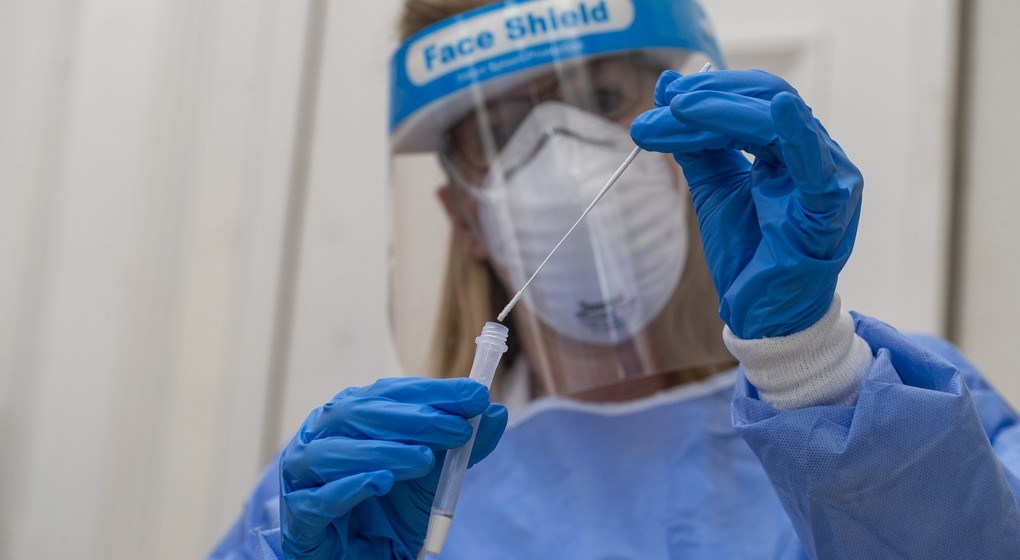The Omicron variant of the coronavirus is currently responsible for 8% of all registered infections in Belgium, announced virologist Marc Van Ranst says on Twitter on Friday.
The percentage has increased by 2% in one day, a development that was to be expected, according to virologists.
De omikron-variant neemt momenteel reeds 8% van de SARS-CoV-2 virusmarkt voor zijn rekening.
— Marc Van Ranst (@vanranstmarc) December 17, 2021
On Monday, Omicron still accounted for 3% of infections, and yesterday/Thursday, the figure already climbed to 6%, and today the percentage has increased again.
"We also see this in South Africa, in the United Kingdom, in Denmark," Van Ranst said earlier, adding that the evolution in Belgium is not unexpected.
In absolute figures, this means that the variant is responsible for 700 to 1,000 detected cases per day, according to virologist Steven Van Gucht.
"The figures are doubling every two days," he said during a press briefing on Friday morning. "The figures for the Delta variant are slowly coming down, but below the waterline, you can see Omicron coming up, and that is going quite fast at the moment."
Related News
- Over 300,000 people already registered via Qvax to get booster shot faster
- Christmas holidays will happen with current rules, says Vandenbroucke
- 'First a test, then a party': how to organise Christmas safely this year
Within a few weeks, the Omicron variant could be the dominant one. "Early next year we can expect an Omicron wave: we will have had the end-of-year celebrations and people will be returning from holidays."
While that is sure to give the highly infectious variant a boost, Belgium will also speed up its campaign for the booster vaccinations, which have a significant effect against Omicron: a third shot gives over 70% protection against disease symptoms.
After a double vaccination with AstraZeneca, the protection against Omicron increases from nearly 0% to 71% and after a double Pfizer shot, the protection increases from 40% to 75%, according to new studies.
Additionally, the decline in the number of registered infections is greatest in the oldest age groups, who have already received the booster shot.
Need for nuance
For the time being, scientific knowledge on the variant is still limited. Experts have stressed that it is not yet clear how sick it makes people or how it reacts to existing vaccines.
“In essence, we know very little about this variant. We do not know yet whether it is more infectious, and if it is, we do not know how much more," Van Gucht told The Brussels Times in early December.
He added that it is normal for more infections to be linked to this variant, as countries across the world are specifically searching for it.
So far, it seems that people infected with the new mutation in South Africa (where it was first discovered) are not seriously ill, according to the president of the South African Doctors’ Association, Angelique Coetzee, who told the BBC that the main complaints are sore muscles and fatigue.

